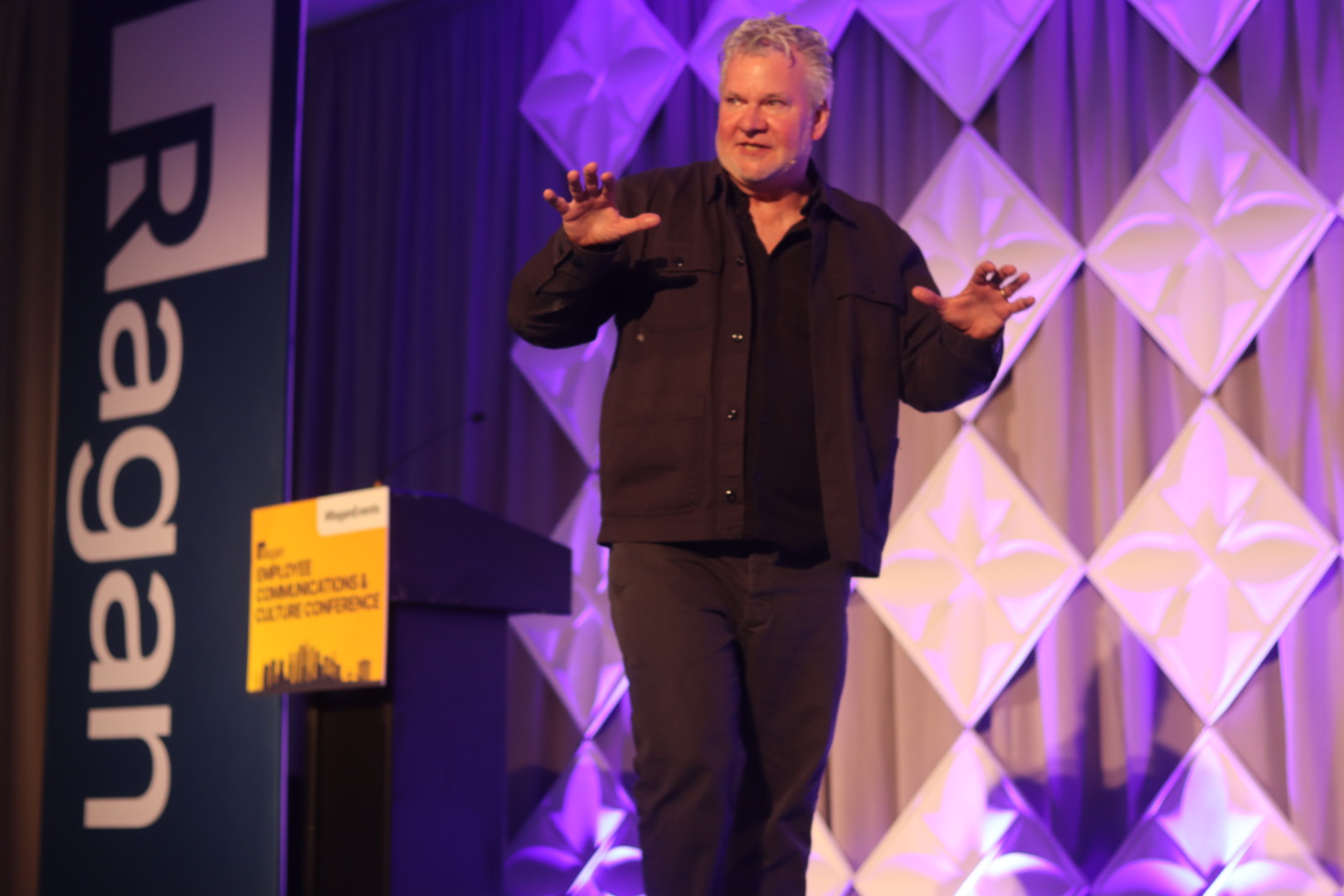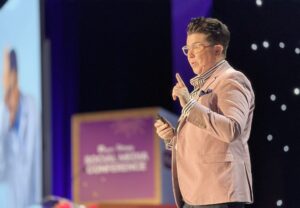Ragan Employee Communications & Culture Conference kicks off with a lesson in improv
Kelly Leonard of The Second City shared how improvisation helps in communication.

When you hear about improv, you may think about performances filled with raucous laughter in dimly lit theaters or the origins of many a star on Saturday Night Live. But the tips and tricks that work for some of the world’s best comedic minds also help you communicate better with colleagues.
Kelly Leonard, vice president of creative strategy, innovation and business development at The Second City, kicked off Ragan’s Employee Communications and Culture Conference with an interactive keynote that demonstrated how many of the same skills that improv performers use can help comms pros do their jobs more flexibly and effectively.
“Improv is a lot like yoga for the mind,” Leonard said.
Bringing improv into negotiation
Leonard began by prompting the audience to engage in an improvisational exercise. To start, asked one person to try to convince two others at their table of an idea, with the respondents then replying with a “yes, but” response the first time.
This response method showed that by failing to build on the original idea and changing the topic, the conversation didn’t really go anywhere. But when the same concept was done with a “yes, and” response, more ideas freely flowed, allowing for increased creativity and collaboration.
According to Leonard, the ability to keep a progressive back-and-forth is core to any good brainstorming session, and effective leaders shouldn’t be frustrated by slow progression of ideas.
‘“It takes about 2,000 ideas to get to a good one,” he said. “Don’t be daunted by that.”
He also emphasized that negativity doesn’t help the ideation process.
When you say no to an idea, you’re saying no to a person.”
Navigating constructive disagreements
In any aspect of life or work, people are bound to have disagreements. Leonard shared a story about how his daughter, who dealt with some health issues, made a friend who had parents staunchly opposed to vaccines. Rather than not allowing his daughter to communicate with the new friend or openly criticizing the parents, Leonard and his wife employed another improv technique: the “thank you, because”. In this fashion, Leonard and his wife aimed to find common ground with the parents.
“We said, ‘thank you because it’s clear you also care so much about your daughter’s health, just like we care about our daughter’s health,’” he recalled. “It’s just a different way to get there.”
This tactic can help comms pros get through to people or organizations they otherwise might struggle to reach.
“Find something, no matter how small, that you do value,” Leonard said. “People will stay in conversations longer.”
The more specific we are, the more likely we are to engage active listeners. Leonard recalled another past Second City exercise wherein two people present opposing views of something mundane, like smooth versus chunky peanut butter. The aim is not to argue the overall subject as much as it is to define more nuanced points for connection within the conversation.
“Nothing is fun or funny because it’s vague,” he said. “How do you fill spaces with specific things that people want to listen to?”
No fear of failure
It’s natural to fear failure. We all want to succeed as much as possible in our personal and professional lives. But Leonard shared that when we’re able to shed some of that fear, we can open ourselves up creatively as communicators.
Leonard said that it’s important to recognize these failures and missteps as unifying points for connection, particularly for leaders.
“We don’t want to hear leaders’ success stories,” he said “We want to hear about fiascos and struggles and where they came from. That’s the point of connection.”
Leonard closed by telling the audience not to fear failure, but instead to embrace it as a building block. He shared a thought from his former student Stephen Colbert that we need to “embrace the bomb,” a comedy term for a failed performance.
“You gotta love when you fail, and it’s hard,” he said. “But it requires you to be fiercely present in the moment.”
Sean Devlin is an editor at Ragan Communications. In his spare time he enjoys Philly sports and hosting trivia.







